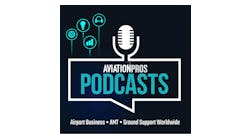Proponents of long-haul flights at Dallas Love Field have juiced the jets on their lobbying campaign.
And a look at the political calendar may reveal why: Southwest Airlines Co. and its allies could face a closing political window for repealing the Wright amendment.
Even as the mayors of Dallas and Fort Worth hammer out a local deal, a tight election-year congressional calendar will make it hard to take up Wright. Congress is set to take off all of August and adjourn by Oct. 6.
The political landscape could also change.
Polls show Democrats could take over at least one chamber of Congress in the Nov. 7 election. A change in party control could force Southwest to redraw its flight plan.
"That certainly could happen," said Cal Jillson, a political analyst at Southern Methodist University in Dallas.
The limited legislative schedule and shifting political tide favor American Airlines Inc., which operates its largest hub at Dallas/Fort Worth International Airport and opposes any changes to the 1979 law.
American officials say they are cooperating with the mayors.
But privately, they complain about being forced to accept a deal that would favor Southwest. Delaying the process, they say, works to their advantage.
That strategy has drawn criticism from a lead proponent of repealing Wright.
"I have not seen any evidence that American Airlines is interested in sitting down at the table and introducing anything," said Rep. Jeb Hensarling, R-Dallas, who is co-sponsoring a repeal proposal with Rep. Sam Johnson, R-Plano.
Indeed, their sponsorship of the House bill is emblematic of the role that Republicans have played in leading the Wright repeal movement.
GOP Sen. John Ensign of Nevada is the sponsor of a Senate proposal.
"Their core support is mostly in the Republican Party," said a senior American official.
SMU's Mr. Jillson said Southwest and its allies also are motivated by a sense they are making progress. The mayors of Dallas and Fort Worth are working on a plan to lift restrictions at Love -- not to close the city airport and force Southwest to move to D/FW, as American has suggested.
Southwest's momentum
"Southwest feels like the ball is moving, and they would be crazy not to keep it moving," Mr. Jillson said.
Dallas Mayor Laura Miller set a June 14 deadline to produce a plan, and Fort Worth Mayor Mike Moncrief set Aug. 1.
Tom Chapman, Southwest's Washington legislative counsel, said Southwest stood down for 30 days to give the mayors time to negotiate. But now, he said, it's time to take advantage of the renewed momentum.
Mr. Chapman downplayed the consequences of a change in majority power on Capitol Hill, noting both the House and Senate proposals to repeal Wright have Democratic co-sponsors. And although the airline supports the local negotiations, he added: "It is such a difficult controversy, we feel we have to bring that energy level to it. We cannot put all our eggs in one basket."
But if the Democrats take control of the House or Senate, others believe Southwest's momentum could stall.
At the very least, the airline would have to retool the effort it launched in 2004 to repeal Wright.
"Part of all their fury is that they are reading these tea leaves," the American executive said.
Political possibilities
For starters, the leadership of key committees would change with a Democratic majority.
In the House, the Transportation Committee is chaired by Rep. Don Young, R-Alaska. Mr. Young is blocking Wright-related initiatives but has indicated he is willing to act on a proposal if North Texas lawmakers find a compromise.
If the Democrats took control of the House, Mr. Young likely would turn the gavel over to Rep. Jim Oberstar, D-Minn., who opposes the current repeal campaign.
It is likely that Mr. Hensarling would have to look for a Democrat to become a lead co-sponsor.
And just as Republican leaders have done, the newly minted Democratic leaders would probably look to the North Texas delegation for guidance. But Mr. Jillson and players on Capitol Hill think it is unlikely that liberal Rep. Nancy Pelosi, D-Calif., who would be in line to be speaker of the House, would rely wholly on the conservative Mr. Hensarling.
That could boost the influence of Rep. Eddie Bernice Johnson of Dallas, the lone Democrat in the North Texas congressional delegation, as well as Rep. Chet Edwards, D-Waco.
Ms. Johnson has unique credentials. Love Field sits in her congressional district. And she is a member of the transportation committee, which has jurisdiction over the issue.
Ms. Johnson opposes repealing Wright. She drew fire from some constituents last summer by suggesting Love be closed to commercial flights. But Ms. Johnson also was among the first to call for a local compromise and has supported the ongoing negotiations between the mayors.
The congresswoman said she would support their recommendations as long as the deal is fair and supported by both cities.
"I would support what they decide, as long as it is unanimous," she said.
American advantage
A majority change in the Senate also might work for American.
Sen. Dick Durbin, D-Ill., would become assistant majority leader. With thousands of American employees living near the carrier's Chicago hub, the airline believes he would block measures undermining the Wright.
And Mr. Durbin might make it more difficult to use the Senate's arcane rules to quietly add provisions to spending bills that would weaken the Wright law.
Sen. Christopher "Kit" Bond, R-Mo., used such a maneuver last year, making Missouri the ninth state that can be served with commercial flights from Love.
If Democrats took control of the Senate, Mr. Bond probably would be replaced as chairman of the Senate Appropriations Committee by Sen. Patty Murray, D-Wash.
Like other members of Washington state's congressional delegation, Ms. Murray was displeased last year with Southwest's unsuccessful attempts to abandon Seattle-Tacoma International Airport and set up a less expensive operation at Seattle's Boeing Field.
"The opportunity presented by Southwest Airlines may look appealing on the surface, but we wholeheartedly believe it would seriously damage regional and statewide interests if the proposal is not quickly dismissed," Ms. Murray and other lawmakers wrote in a letter opposing the airline.
Regardless of how the elections work out, House and Senate leaders will have to sort out the Wright controversy. And it appears increasingly likely any proposal by the mayors may not offer the clarity or political cover they might want.
Participants worry that one or both airlines may not support the deal cast by the mayors -- which would undermine the ability of the North Texas officials to sell their deal to Congress.
That prospect even worries normally optimistic Southwest officials.
"I think it would send a strong signal to Washington if the two cities agree on an approach," Mr. Chapman said.
"But if one or both of the two airlines did not agree, I'm not sure how it would play."
Awaiting report
Additionally, the process could become even more muddled by a report due in two to three months from the General Accountability Office.
The study, requested by Rep. Joe Barton, R-Ennis, will examine alternative uses for Love Field, choices that would be available under one public policy option not considered by the mayors -- forcing Southwest to move to D/FW Airport.
"It will provide a whole new source of info about alternatives that no one locally would have much interest in producing," Mr. Jillson said.
Copyright (c) 2006, The Dallas Morning News
Copyright 2005 LexisNexis, a division of Reed Elsevier Inc. All rights reserved.
Terms and Conditions | Privacy Policy
News stories provided by third parties are not edited by "Site Publication" staff. For suggestions and comments, please click the Contact link at the bottom of this page.





